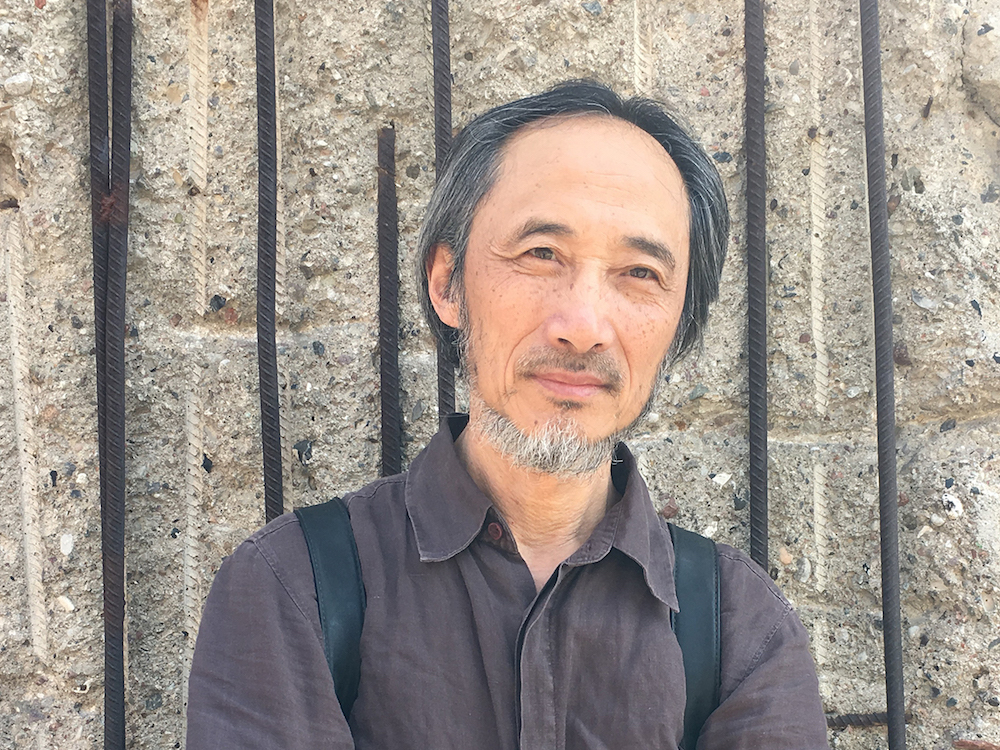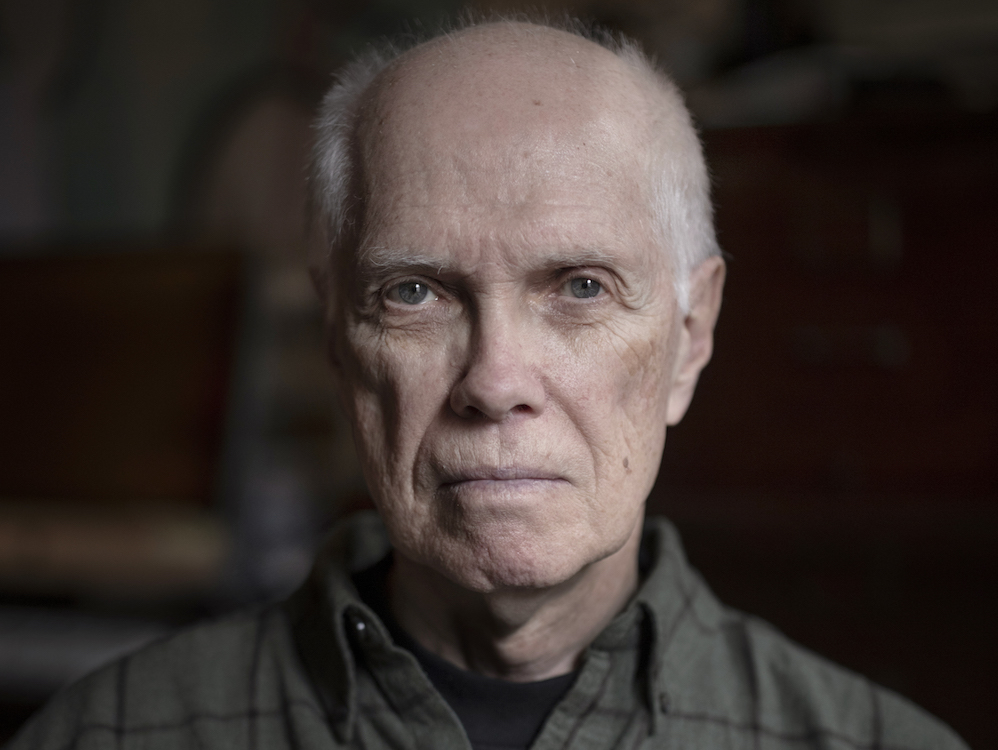Ma Jian’s China Dream, translated by Flora Drew and published earlier this month by Counterpoint Press, is a short, sharp-toothed satire of Xi Jinping’s China. The novel depicts a corrupt bureaucrat’s attempts to implement a new government initiative to overwrite people’s dreams. Ma, a dissident writer who lives in exile in London, portrays a contemporary China in which consumerism goes hand in hand with totalitarianism, and memories of the Cultural Revolution surface at the most inopportune events. China Dream is funny in a kind of hopeless way—the title itself comes from a slogan popularized by the Chinese government in 2013, and a Red Guard–themed orgy scene halfway through reads like a nightmare—and it raises questions about political violence and the suppression of memory that stay with you long after the book has ended. —Rhian Sasseen
Aaron Kunin’s Love Three is a three-hundred-page study of George Herbert’s eighteen-line devotional poem “Love (III).” There’s a clear pattern of advancement and hesitation in Herbert’s poem, and everything—redemption, sanctification, creation—is boiled down to the simplest words in the English language, which is why I’ve been in awe of what Kunin has done in his expansive study. Kunin takes elements of the poem and creates something else entirely. Each numbered section of the book is a restatement of Herbert’s lyric, followed by a paraphrase: “Try to think of it as a third kind of love. The first / kind is nice / The second kind is nasty. Another / kind is nice because it’s nasty. Love three.” Then comes a series of contemplations on what his paraphrases have missed—“Here’s something Herbert might have been thinking about. Magdalen Herbert, his mother, was a powerful woman … How would I want to change Herbert’s poem?”—and a study of what other critics have written: “Herbert’s style covers the aggression of the penultimate line so that many otherwise careful readers hear only the sweet tone. Sweetness that overpowers every other suggestion.” Then Kunin writes about the poem through his own sexual history; the book is his extensive process of working through a wide range of memories, sexual experiences, fantasies, and limits on the page, and Herbert’s poem is the key. Open Love Three to any section and you get an intimate portrait of both poets, and honest reflections on our most complicated feelings. —Camille Jacobson
If Ron Padgett ever returned to Twitter (his account has been dormant since 2016), he would be great at it. I mean this as a high compliment—his short, quotidian observations are profound for their simplicity and occasional absurdity (his poem “How to Be Perfect,” illustrated by Jason Novak, delivers this effect in a way both satisfying and delightful). His latest collection, Big Cabin, is broken into three parts: the first and third are verse poems, the second a long series of prose entries. All were written over three winters in a Vermont cabin. Padgett’s way of literally presenting reality creates a postmodernist’s world. His poem “It’s Good” begins: “It’s good to have a heater / you can hold your hands in front of / to get them warm enough to hold a pen / to write ‘It’s good to have a heater.’ ” When he’s not thumbing his nose at language, he’s writing silly homages to sandwiches and chickadees. Both are deeply pleasing to read and would probably be right at home if shared on your newsfeed. —Lauren Kane
Back in 2017, Suzi Wu’s “Taken Care Of” was the pep in my step, the bass in my pace. I replayed it each morning like a mantra. Suzi Wu’s second EP, Error 404, came out at the end of March this year, and its fusion of dancehall bounce and the “occult pop” of her debut EP, Teenage Witch, immediately became the soundtrack to my train delays and late-night grocery runs, instilling me with a city-kid confidence and the feeling of wearing thick-soled boots. The commanding title track alternates between a rhyming monotone and a growling chorus straight from the internet generation: “I simply am not there.” “Hungry,” an absolute bop, has the slick cool of Destiny’s Child and the intimidating banter of M.I.A. Perhaps part of Suzi Wu’s appeal is that even when she’s joking, she does so with a wry realness seldom found on a party playlist. Her voice is elastic, with a drawling accent that wafts from performative pomp to hoarse confession. In many ways, she feels adjacent to a grungy British sensibility—a more feminine King Krule. She takes grime and shoves it through a rosy filter to produce songs filled with swagger, underestimated sweetness, and electronic bite. —Nikki Shaner-Bradford
Rowan Hisayo Buchanan’s Starling Days is an exquisite rendering of love, sadness, and misunderstanding. When the protagonist, Mina, is hospitalized following a suicide attempt, her partner attends to her: “For the whole visiting hour, his face was twisted with confusion. ‘Why did you do this?’ he’d asked. But she couldn’t point and go, There, that. That’s what’s wrong with me.” The dynamic of this scene replicates itself throughout the novel—the effort to make sense of the inexplicable; the figures’ ensuing confusion; a face always twisted. But just as much as Buchanan maps her characters’ attempts to find answers, she also reveals how in some cases, to press on sadness, to try and root out a single cause, might only push it deeper into the skin. Starling Days is an exploration of depression without clear resolution, but it is all the more precious for that refusal. I want to share this book with everyone I know and say, Look: here is a way to be with an emotion without anticipating its meaning. Sadness ebbs and flows but never goes away, and it’s good to know a few more of its edges. I closed this book with a sense of clarity brought not by information, but by submersion. —Spencer Quong
from The Paris Review http://bit.ly/2X01H2K



Comments
Post a Comment